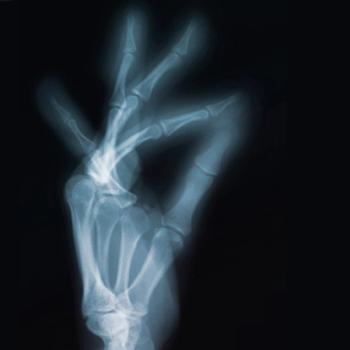
When I heard the expression "Leave it all on the floor," I decided to put those words to use.

When I heard the expression "Leave it all on the floor," I decided to put those words to use.

Breast cancer survivor says a cancer diagnosis is a shocking experience, and shares help to cope with it.

Amy Herman offers tips to increase visual intelligence, and how that can be helpful for patients with cancer.

Waiting for that next office visit can be stressful.

Patients in a small study who were placed on a certain diet plan for three months saw a decrease in fatigue from breast cancer treatments.

Two-time cancer survivor offers the perspective of time and experience to fellow survivors.

A patient with metastatic breast cancer offers nine steps to getting away from fear.

Attitude. Belief. Courage.

Health professionals have always touted the benefits of exercise, but what role, if any, does exercise play in helping fighting post-cancer fatigue?

A large study at the University of Rochester Medical Center’s Wilmot Cancer Institute sought out to get to the root of the causes of cancer-related cognitive impairment and who may be at risk.

Brian J. Czerniecki, M.D., Ph.D., discusses a promising vaccine for certain patients with breast cancer.

Breast cancer and melanoma survivor who is also a clutter-clearing author shares her tips for cancer and other papers.

Accepting feelings of guilt is not only normal, but it's a part of life.

Living resolution-free has given me a chance to really think about what matters now and how I want to live.

Breast cancer and melanoma survivor shares coping tools that help her.

Fatigue affects many people, but cancer related fatigue is a very different malady.

When zoledronic acid use happens less frequently, patients with breast cancer, prostate cancer or multiple myeloma with bone metastases did not see an increase in skeletal-related events.

Some quick lessons I’ve learned from a desert tortoise.

Sibylle Loibl, M.D., Ph.D., discusses the GeparSepto trial and what it means for women with breast cancer.

An early stage trial found that a new drug combination can reduce the rates of treatment-related diarrhea in patients with breast cancer.

Two-time cancer survivor shares effective, yet gentle ways to change habits for the new year.

NATRELLE INSPIRA ® SoftTouch breast implants were recently approved for women with breast cancer.

Exercise had become a way of life for this metastatic breast cancer patient, but the Livestrong program at the YMCA provided the chance to add more variety into her routine and, more importantly, offered the chance to see the strength and hope in fellow survivors.

Becoming comfortable and complacent in the world of breast cancer is an easy thing to do, and learning to thrive can be a challenge.

Novel combinations may lead to the future of HR+ breast cancer care.